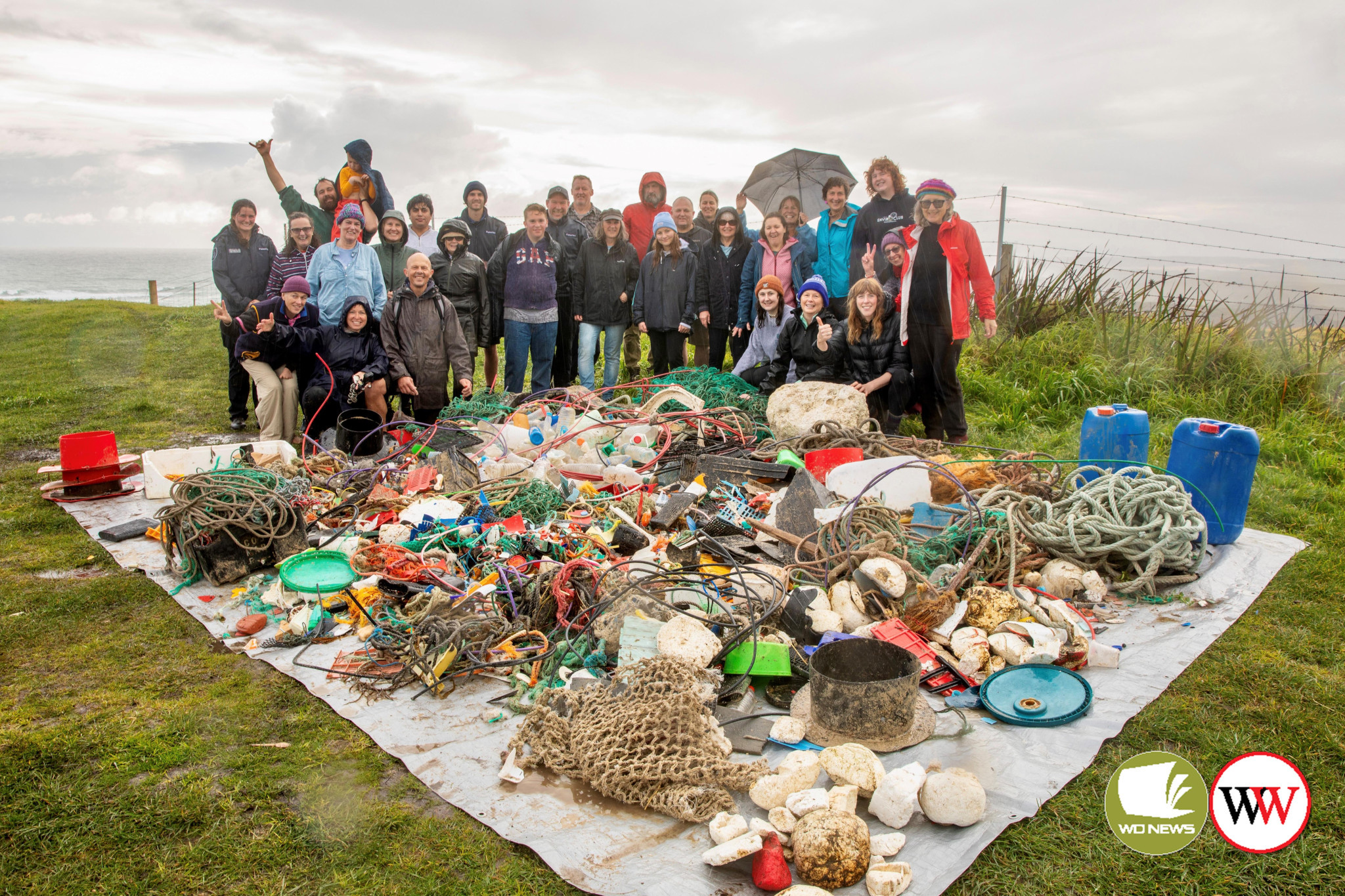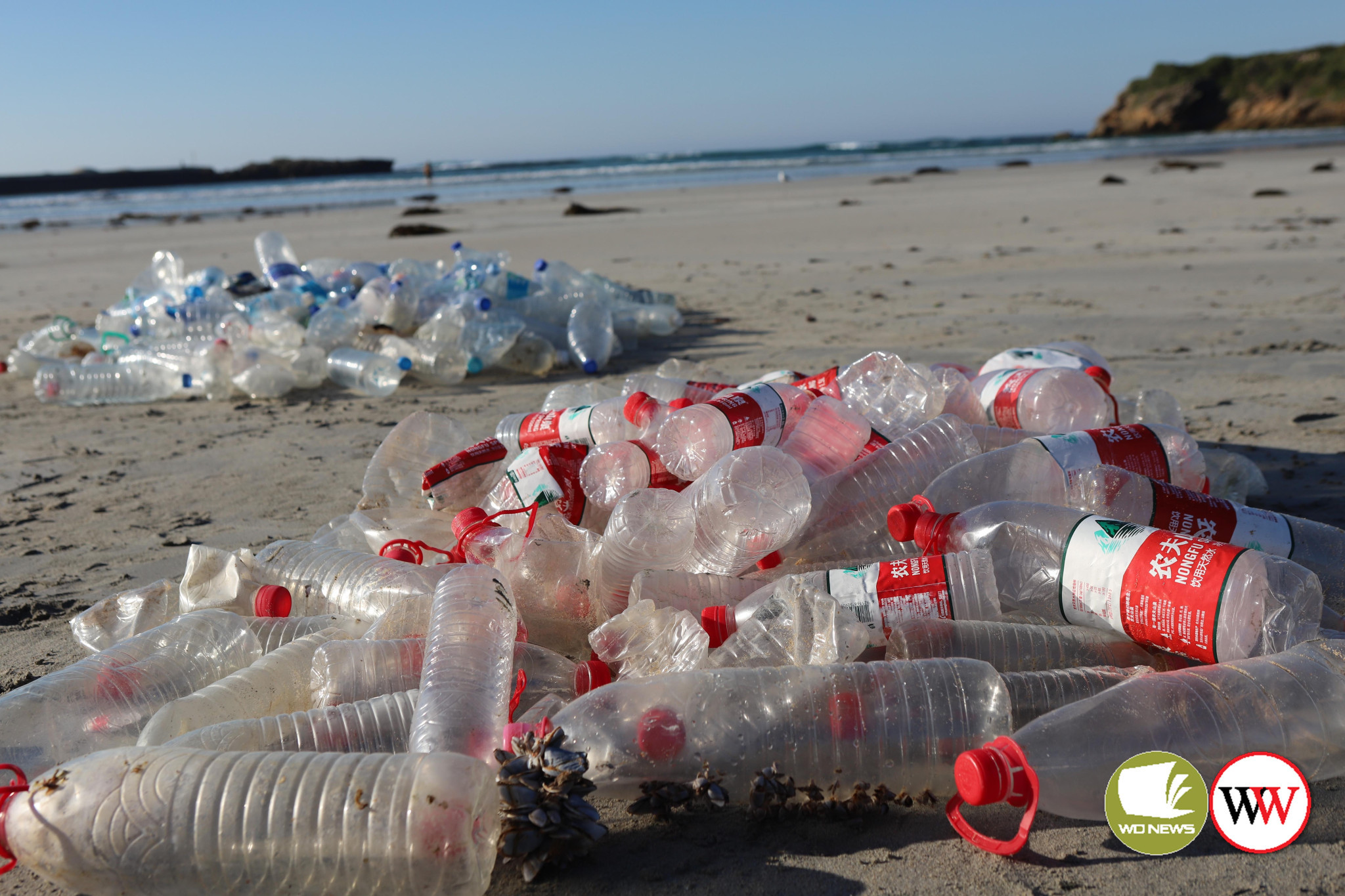Community
7 June, 2024
Concerns over pollution from high sea activities
ACCORDING to members of Warrnambool’s BeachPatrol group, high-sea activities are the main source of ocean plastic pollution.

In the lead up to World Ocean Day tomorrow (Saturday), the group has expressed its concerns over the high level of plastic pollution.
Despite the commonly held belief that most ocean plastic comes from land-based sources, BeachPatrol Warrnambool’s comprehensive research over the past seven years reveals a different story.
‘The Bottles Overboard Project’ initiated by Warrnambool’s dedicated community action group, focuses on foreign bottles and packaging that is washing up on the beaches of southwest Victoria.
Through meticulous data collection and analysis, group members have determined that the majority of marine debris originates from high-sea activities, primarily fishing and shipping waste.
So far this year, out of 667 drink bottles collected from our beaches, a staggering 435 were foreign drink bottles not sold in Australia.
Only 58 were branded bottles sold in Australia while 172 were bottles with missing labels or unknown brands.
The group’s data showed that 80 per cent of the 3,900 plastic branded items collected over seven years originated from Asia.
BeachPatrol volunteers tirelessly clean beaches every day, documenting and tracing the origins of plastic waste.
Despite their efforts, the problem persists and worsens, with a notable increase in shipping waste since 2020.
“We, the volunteers, are increasingly frustrated as we are left with the responsibility of cleaning up after multi-trillion-dollar industry polluters, while government agencies remain inactive,” Warrnambool-based member Colleen Hughson said.
“We have reached out to the State Minister of Transport and the EPA, but our pleas have been largely ignored.”
To address this critical issue, Ms Hughson said BeachPatrol members were calling on the state government to introduce mandatory garbage disposal fees and to integrate garbage disposal costs into port fees.
They are also urging the government to enhance rubbish reception facilities and to ensure ports have adequate infrastructure to handle waste from ships.
“Implementing these actions is crucial for reducing the amount of litter dumped by merchant ships,” Ms Hughson said.
She also believes a fundamental concern is the misleading definition of ocean plastic.
“The term ocean plastic or ocean bound plastic is widely misunderstood by the public. Most people assume it refers to plastic that is actually in the ocean or washed upon beaches,” Ms Hughson said.
“However, the current industry definition includes plastic found or manufactured up to 50 kilometres away from any coastline, encompassing environments such as freshwater and drainage systems.
“This broad definition distorts the reality of what ‘ocean plastic’ truly is, leading to ineffective policies and strategies. There is no government-accepted definition of ‘ocean plastic’, and the plastics industry’s definition lacks scientific substantiation.”
According to Ms Hughson, this discrepancy means that current legislation and waste policies, which address ‘ocean plastic’, often fail to tackle the plastic actually in the ocean.
“But complexity should not be an excuse,” she said.
“Government agencies often cite the complexity of policing the shipping industry as a reason for inaction.
“However, the real complexity lies in dealing with the consequences of ocean pollution: plastic breaking up in our oceans, killing marine life, and contaminating the ecosystem.
“It’s far more manageable to enforce proper waste disposal protocols for a single industry than to handle the widespread environmental damage it causes.”
On World Ocean Day tomorrow, BeachPatrol urges the government to take immediate and decisive action to address ocean-sourced plastic pollution.
“Our oceans and coastal communities cannot continue to bear the burden of an issue that can and must be resolved through responsible governance and industry accountability; the time to act is now,” Ms Hughson said

